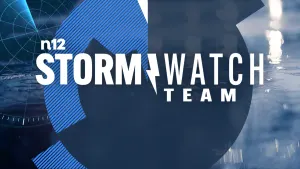‘I wanted to end it all.’ Report says human trafficking victims struggle to find help in CT
A new report says that trafficking victims can fall through the cracks in a "fractured" system.
Share:
More Stories
2:30

Jury selection begins in deadly stabbing of Fairfield Prep student at party
1h ago2:17

Homeschooling parents clash with lawmakers over Waterbury captivity case
4h ago
News 12 weather blog
4h ago0:44

State comptroller: Connecticut facing firefighter recruiting crisis
7h ago0:47

Officials: Students and staff escape Cheshire Academy dorm fire
8h ago
REAL ID deadline is Wednesday – but Secretary Noem says CT travelers can still fly for now
8h ago2:30

Jury selection begins in deadly stabbing of Fairfield Prep student at party
1h ago2:17

Homeschooling parents clash with lawmakers over Waterbury captivity case
4h ago
News 12 weather blog
4h ago0:44

State comptroller: Connecticut facing firefighter recruiting crisis
7h ago0:47

Officials: Students and staff escape Cheshire Academy dorm fire
8h ago
REAL ID deadline is Wednesday – but Secretary Noem says CT travelers can still fly for now
8h agoHuman trafficking is growing rapidly in Connecticut, but victims are falling through the cracks.
A new report says the state is struggling to help them because of critical gaps in a “fractured” system.
VICTIM’S STORY
Human trafficking is hard to see, but the scars are very visible.
“I became more suicidal than I was as a younger teenager and I just wanted to end it all,” one anonymous victim told News 12 last year. “I thought I was dating a guy that actually loved me, and he was just using me for my body.”
Last year, the Connecticut Department of Children and Families handled more than 300 human trafficking cases. Investigations are up 200%, according to the Regionalized Human Trafficking Recovery Taskforce.
Interstate 95 is a hot spot for the illegal sex trade. Perpetrators cycle victims in and out of roadside motels, then quickly disappear. Airports and casinos are also popular.
“Child trafficking is everywhere, in every community,” said DCF commissioner Jody Hill-Lilly.
GAPS IN THE SYSTEM
But victims in Connecticut face a confusing maze of bureaucracy, according to a new report from the task force.
“Victims encounter wildly different experiences depending on where, and how, they enter our state system,” said task force co-chair Krystal Rich.
Those gaps include:
- Decentralized Oversight:
- Varied Systems & Processes:
- Inconsistency in Data Collection & Sharing:
- Policy & Legislative Gaps:
- No Formal Adult Victim Response:
- Resource & Funding Constraints:
- Limited Focus on Labor Trafficking:
CT IS MAKING PROGRESS
It’s not all bad news. Advocates said Connecticut has made significant progress, especially when it comes to police training.
“Issues and offenses that used to be miscategorized are now better understood,” said South Windsor Police Chief Kristian Lindstrom. “And that understanding brings with it a need for very elaborate strategies to combat the problem.”
In 2006, Connecticut made Trafficking in Persons a separate crime, and later created the Trafficking in Persons Council to recommend changes to lawmakers.
The state also partners with the FBI on HART, which stands for Human Anti-Traffic Response Teams.
But that enhanced effort isn’t cheap – and funding is running low.
“We’ve had a wait list since 2019,” said Erin Williamson with Love 146, a New Haven-based group that fights the child sex trade around the world. “As of this morning, there are 35 kids that are in need of long-term services that don’t have them, because we simply don’t have the resources.”
WHAT’S NEXT?
The Trafficking in Persons Council will receive the new report next Thursday. Then the group will craft new recommendations for state lawmakers.
Despite the challenges, victims stress that help is out there.
“Don’t be afraid to open your mouth,” she said. “Because if you’re afraid to open your mouth, you won’t get anywhere. No one will know that you need help.”
More from News 12
0:38

Connecticut State Police secure new contract with pay raises
0:25

Man arrested for making threats on city bus in Bridgeport
0:27

Bridgeport man arraigned on attempted murder charge after two stabbings, hostage situation
1:43

CT man sentenced for deadly wrong-way crash on Hutchinson River Parkway in Westchester
1:57

Turn to Tara: Law enforcement warns of widespread toll scam targeting drivers
0:28
